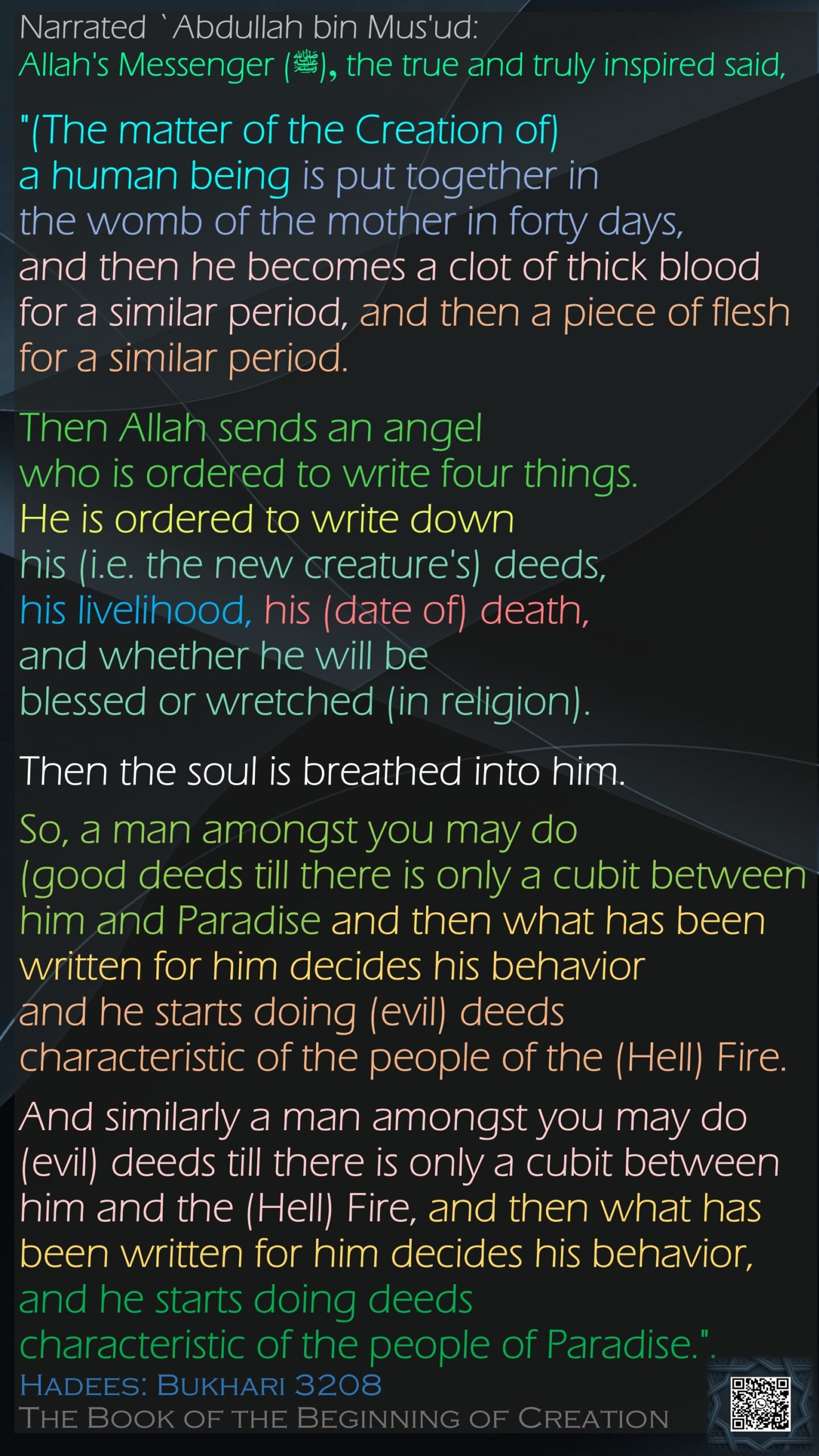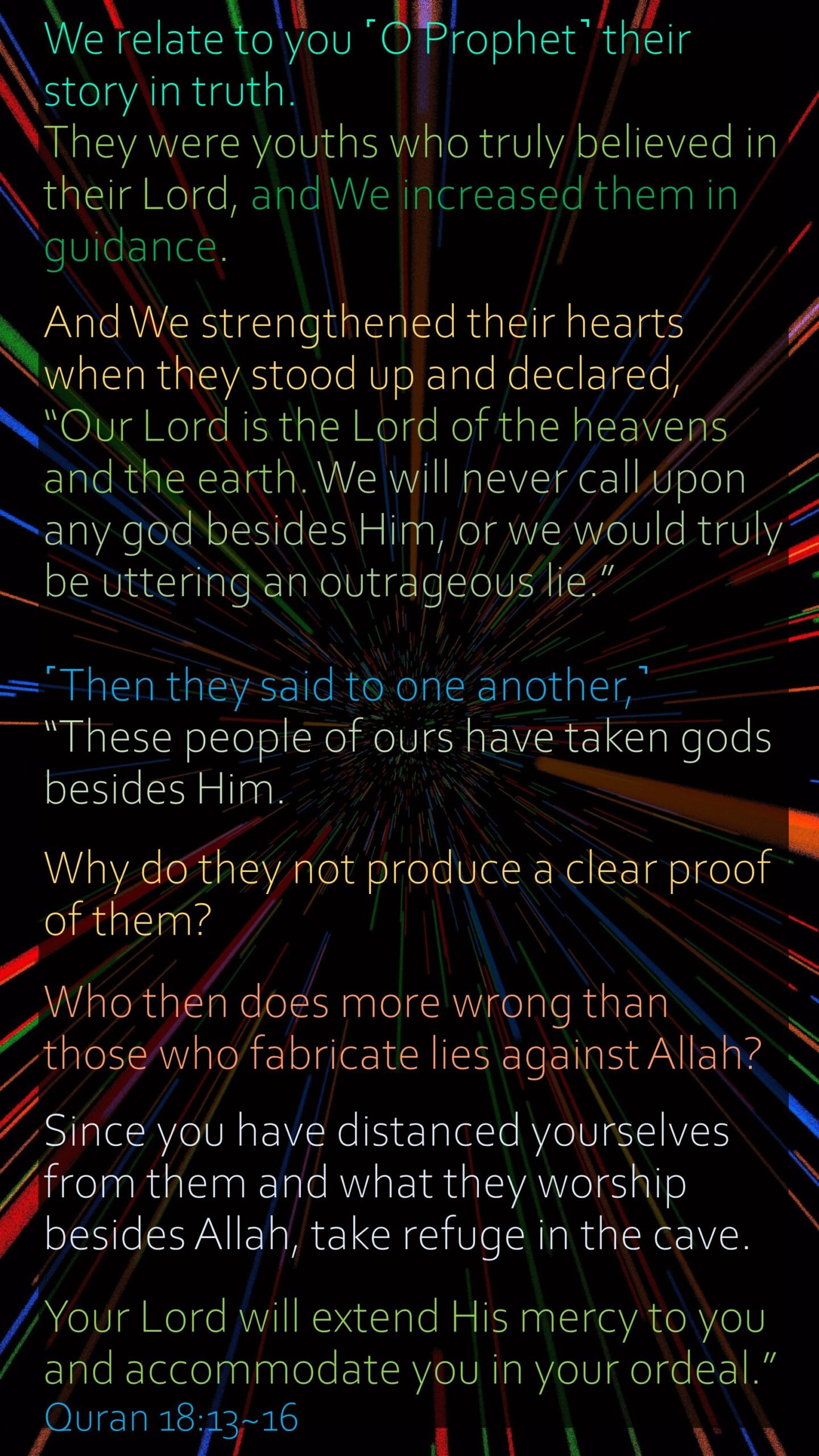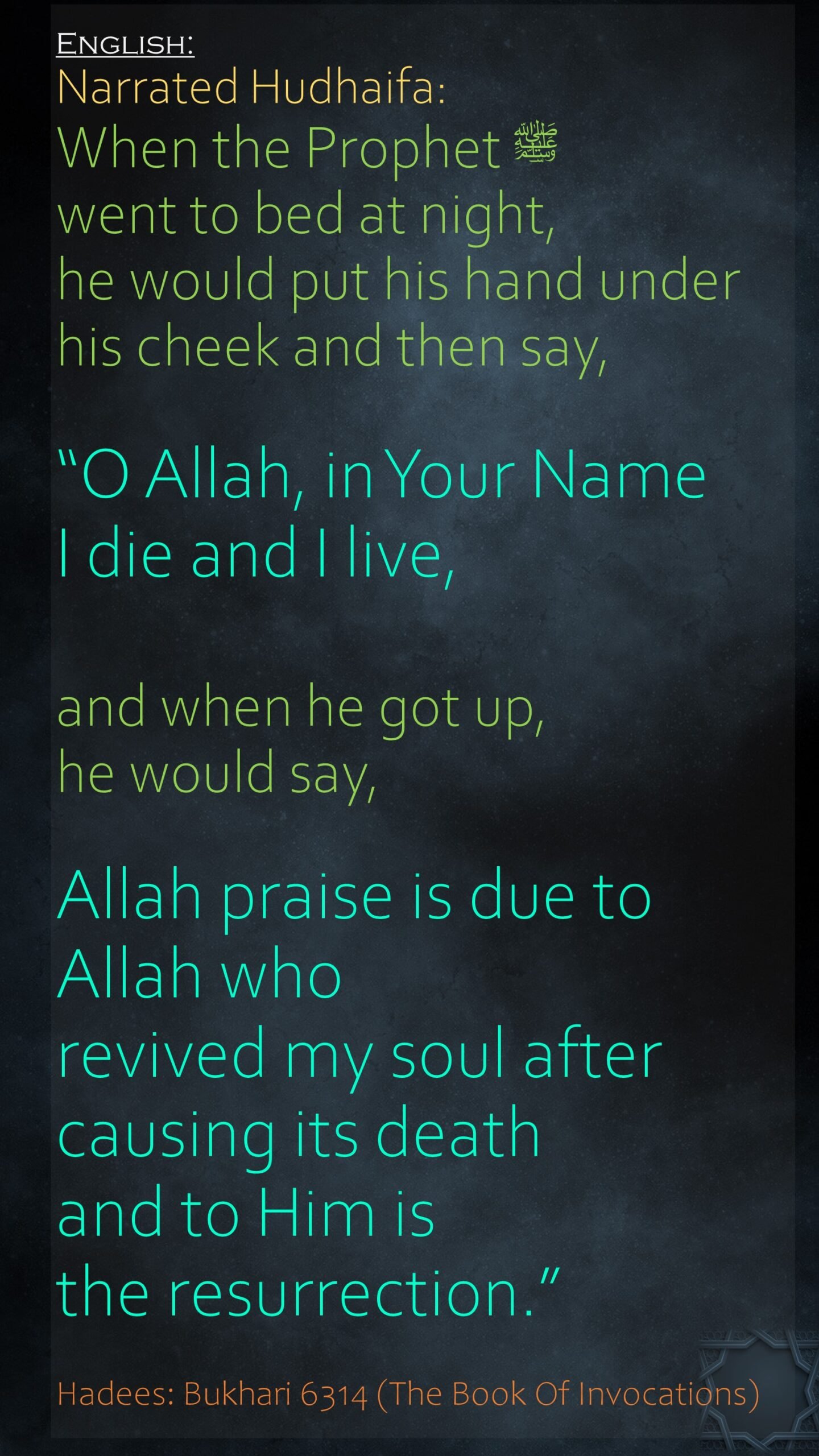25
Jan, 2026
30
May, 2025
Quran 2:189 (Surah al-Baqarah)
Islam, Quran 002, 189, al_Baqarah, al-Birr, Allah, ayat, daily, fear, Heifer, inspirations, islam, islamic, means, mindful, moon, Muhammad, Obey, PBIH, phase, pilgrimage, Prophet, quran, righteousness, SAWW, success, successful, Surah, taqwa, The Cow, time
17
Mar, 2025
Hadees: Nisai 1302
Hadees, Islam 1301, 1302, accepted, Allah, confirm, daily, forgive, forgiven, hadees, inspirations, islam, islamic, istaghfaar, Master, Messenger of Allah, mosque, Most Merciful, Muhammad, nisai, O Allah, Oft-Forgiving, One, only, PBUH, SAWW, Self-Suffcient, sins, Slef-Sufficient, supplication, three, times
23
Oct, 2023
Hadees: Ibn-e-Majah 925
Hadees, Islam acceptable, allaahumma innee as’aluka ‛ilman naafi‛an, Allah, ask, beneficial, daily, deeds, goodly, inspirations, islam, islamic, knowledge, morning, Muhammad, narration, PBUH, prayer, provision, SAWW, supplication, Umm Salamah, wa ‛amalan mutaqabbalaa, warizqan ṭayyiban, اللَّهُمَّ إِنِّي أَسْأَلُكَ عِلْمًا نَافِعًا، وَرِزْقًا طَيِّبًا، وَعَمَلاً مُتَقَبَّلاًاً
9
Oct, 2023
Hadees: Muslim 1354
Hadees, Islam Allah, daily, east, filth, ice, inspirations, islam, islamic, Muhammad, opening, PBUH, prayer, purify, recitation, recite, SAWW, silence, sin, snow, Takbir, wash, Water, west, افتتاحی دعا, دعاء الاستفتاح
10
Sep, 2023









